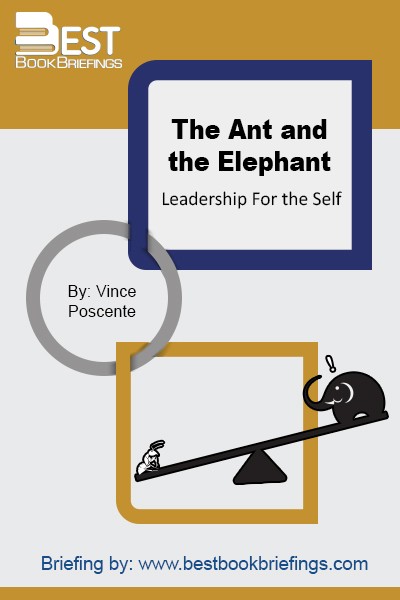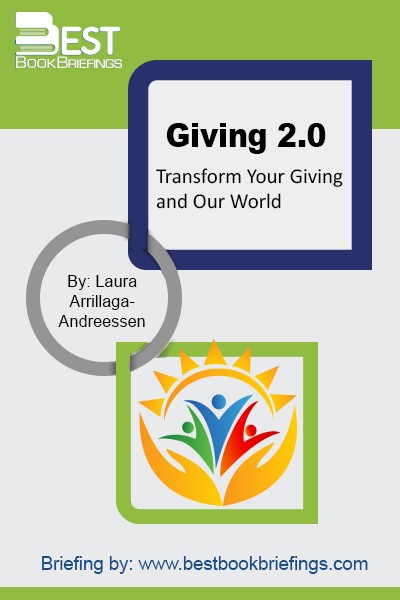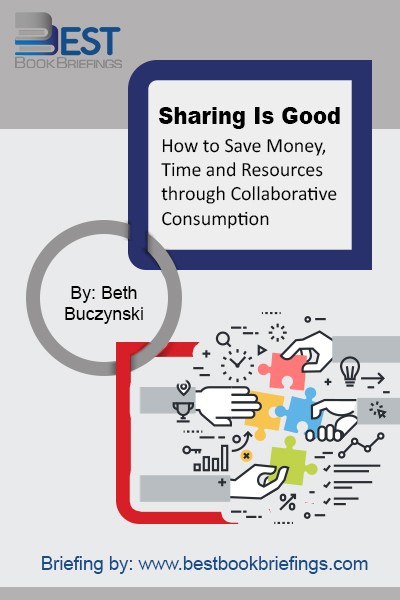Sharing Is Good
How to Save Money, Time and Resources through Collaborative Consumption
Number of pages: 181
Publisher: New Society Publishers
BBB Library: Personal Success
ISBN: 9780865717466
Editorial Review
Sharing isn’t complicated. It means giving others access to what we have so that they can fill a need. Simple as that. So, does something as obvious as sharing even have a history? Haven’t we always known that it’s nice to share what we have? Well, yes and no. It turns out that sharing is deeply intertwined with successful evolution. Lots of animals cooperate to share resources, work, and relationships. Think about beehives or ant hills, where tasks are divided among different members of the community so the entire population can grow and thrive. We, too, are programmed to share, but as a society, we’ve worked hard to forget it. Despite the modern normalization of selfish behaviors, our natural inclination for sharing has endured in not-so-obvious ways. If you’ve ever borrowed a book from the library or leased an apartment, you’re already familiar with the benefits of shared resources. New technologies and cultural networks now allow us to share in ways and on a scale that has never been possible before. These new mechanisms eliminate many of the inefficiencies that caused ancient cultures to move away from sharing as a way of life. Sharing isn’t new, but the way we’re doing it now is unlike anything we’ve attempted in the past.
Book Reviews
Books on Related Topics

Before anyone can reach their full potential as a leader, they must first be a leader to themselves. Imagine a tiny ant on the back of a massive African elephant. No matter how diligently that ant marches east, if the elephant it sets upon travels in the opposite direction, the ant

All the money that people give away might seem a lot, and yet it pales in comparison to the needs we see all around us: urban slums and rural poverty, children in failing schools and children without access to any schooling whatsoever, deforestation and unclean water, crippling diseases of many kinds.

Driving Down Cost is the first accessible and practical book to address cost management for managers across the board. Drawing on over twenty-five years of consultancy experience from over fifty international, large scale one-time cost reduction projects, Andrew Wileman provides a toolkit filled with key ideas and strategies for analyzing cost

Welcome to the “new normal” of work, employment, and career success. We have moved in just few years from an age of affluence, when the stock market was booming, the unemployment rate was below 5%, and people were becoming millionaires and billionaires all around us, to a new age of turbulence,

The Go-Giver tells the story of an ambitious young man named Joe who yearns for success. Joe is a true go-getter, though sometimes he feels as if the harder and faster he works, the further away his goals seem to be. And so one day, desperate to land a key sale

Social intelligence is defined as the ability to get along well with others while winning their cooperation. Social intelligence is a combination of sensitivity to the needs and interests of others, which is sometimes called your social radar, an attitude of generosity and consideration, and a set of practical skills for

Giving 2.0 is the ultimate resource for anyone navigating the seemingly infinite ways one can give. The future of philanthropy is far more than just writing a check, and Giving 2.0 shows how individuals of every age and income level can harness the power of technology, collaboration, innovation, advocacy, and social



